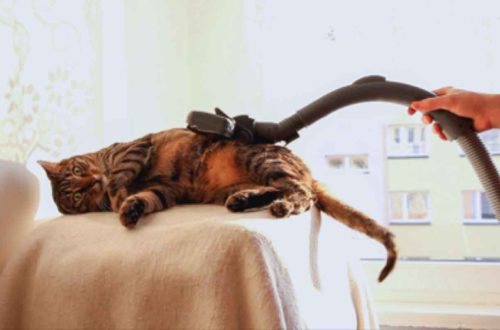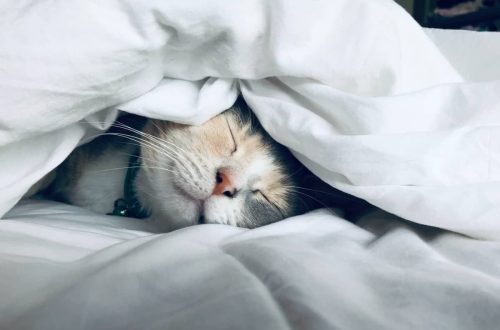
Cat stress. What to do?
Most importantly, remember that stress is a normal reaction of the body to an external stimulus. However, the degree of stress is very important, because the choice of means that will be required in order to calm the pet depends on it.
How do you know if a cat is stressed?
Change in appetite
The pet may refuse to eat or, conversely, experience an abnormal appetite.
wool licking
Constant washing also indicates a nervous breakdown, especially if the cat licks the hair to the bald spots.
Atypical behavior
If a pet, which was rarely given into hands before, has become affectionate, requires attention and does not leave the owner for a minute, the reason is probably the same – an emotional upset. By the way, affectionate cats can, on the contrary, become aggressive or unsociable – this should also alert the owner.
If you notice any of these symptoms and suspect your cat is stressed, you need to act immediately. First of all, you should determine the cause of this condition.
Causes of stress
The reaction to certain events is individual. For example, some pets can safely be near a working vacuum cleaner, while for others it causes fear and horror. Much depends on the upbringing of the cat, its lifestyle and environment. If a kitten has been accustomed to traveling since childhood, it is unlikely that with age the street will become a stress factor for him. But this cannot be said about cats that, as adults, were out of the house for the first time.
The most common causes of stress in cats include:
Moving to a new house;
Visit to the veterinary clinic;
Transportation;
The appearance of children, new people or animals in the house;
unexpected loneliness;
Jealousy;
Diseases and pain.
Treatment of stress in cats should always begin with a consultation with a veterinarian. In some situations, it will be enough to limit yourself to taking sedatives, in others, full-fledged therapy will be needed.
How to help a cat cope with stress?
Attention switching method
One of the simplest and most effective ways to deal with stress is to distract yourself. Surround the cat with love, care and attention, and little by little she will forget about the circumstances that bother her. This strategy of behavior is especially relevant when new family members or other animals appear in the house.
Physical exercise
As you know, the best rest is a change of activity. That is why one of the options for dealing with stress is physical activity. For example, after moving to a new house or apartment, buy a cat a house with many holes, play with it as often as possible, come up with joint activities – all this will help to cope with the psychological stress that the pet is experiencing.
Face to face with fears
In no case should this method be used independently – only under the supervision of a veterinarian or zoopsychologist. It is generally used to treat severe phobias that impair the quality of life of the pet and its owner.
The essence of the method is to recreate the conditions under which the cat has stress, and systematically exhaust it so that it gets used to them. For example, if a pet is afraid of a vacuum cleaner, you can turn it on periodically for a few seconds, gradually increasing the time.
Cats are very emotional creatures. And although they do not show their feelings as clearly as dogs, they love their owners no less. The task of the owner is to pay attention to the condition of the cat, notice changes in time and analyze the reasons for their appearance.
11 May 2018
Updated: July 16, 2021





